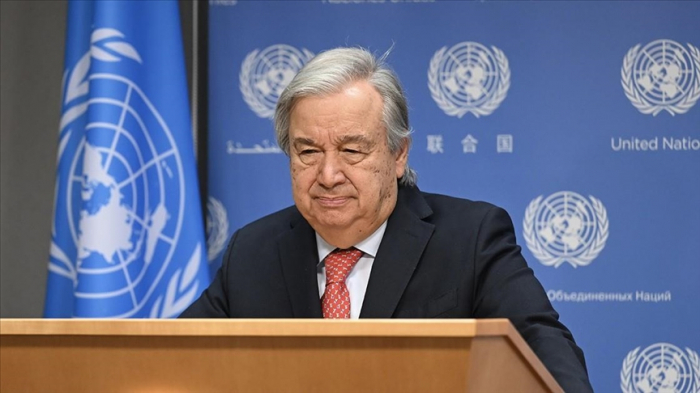"Heat is estimated to kill almost half a million people a year, that’s about 30 times more than tropical cyclones.
"We know what is driving it -- fossil fuel-charged, human-induced climate change. And we know it’s going to get worse," Guterres told reporters.
Extreme heat is "the new abnormal," he said. "But the good news is we can save lives and limit its impact."
Stressing that extreme heat is increasingly tearing through economies, widening inequalities, undermining the UN’s Sustainable Development Goals and killing victims, Guterres said he is launching a global demand with four areas of focus -- caring for the most vulnerable, stepping up protections for workers, boosting the resilience of economies and societies using data and science.
"Finally, I want to make one over-arching point. Today, our focus is on the impact of extreme heat. But let’s not forget that there are many other devastating symptoms of the climate crisis: Ever-more fierce hurricanes, floods, droughts, wildfires, rising sea levels -- the list goes on," said Guterres.
To tackle the symptoms, he said: "We need to fight the disease. The disease is the madness of incinerating our only home. The disease is the addiction to fossil fuels. The disease is climate inaction."
He said the G20 must shift fossil fuel subsidies to renewables and support vulnerable countries and communities.
"The message is clear: The heat is on. Extreme heat is having an extreme impact on people and the planet. The world must rise to the challenge of rising temperatures," he added.
AzVision.az
More about: UN AntonioGuterres















































